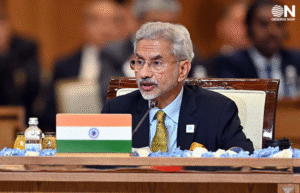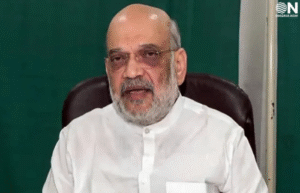Rajya Sabha MP Sasmit Patra Highlights Women’s Safety and India’s Digital Future

Rajya Sabha member Dr. Sasmit Patra recently addressed several pressing issues in Indian politics, women’s safety, and the country’s digital transformation, emphasizing the need for ethical governance and technological advancement. On August 18, 2025, he discussed these topics in a session that brought together policymakers, experts, and civil society representatives, highlighting both regional initiatives and nationwide strategies aimed at fostering social security and economic progress.
One of the primary topics Dr. Patra focused on was women’s safety, drawing attention to ongoing initiatives in Odisha, including Operation Sindoor. This operation has been implemented to enhance law enforcement efficiency, prevent crimes against women, and ensure timely response in emergency situations. Dr. Patra underlined the importance of community involvement alongside government measures, advocating for awareness campaigns and local vigilance programs to empower women and reduce vulnerabilities. He stressed that improving women’s safety is not only a moral imperative but also crucial for sustainable societal development.
In addition to regional safety measures, Dr. Patra elaborated on broader political and governance concerns, highlighting the role of policy reforms and effective administration in strengthening democracy. He emphasized that political stability, transparency, and citizen engagement are critical for addressing socio-economic challenges and promoting equitable growth. By prioritizing ethical leadership and accountability, policymakers can ensure that development initiatives reach intended beneficiaries and that societal trust in institutions is reinforced.
Dr. Patra also highlighted India’s digital transformation as a key driver of national progress. He noted that the adoption of digital payments, enhanced connectivity, and secure online platforms is reshaping commerce, governance, and everyday life. Emphasizing the responsible use of artificial intelligence (AI), he urged that AI technologies should be developed ethically, with robust safeguards to prevent misuse and protect citizen privacy. He argued that integrating technology with policy can accelerate economic growth while simultaneously improving transparency and efficiency in public services.
Connectivity, according to Dr. Patra, plays a pivotal role in bridging urban-rural divides, enabling access to education, healthcare, and financial services. By expanding digital infrastructure and promoting digital literacy, the nation can empower marginalized communities and create inclusive opportunities for all citizens. He further noted that digital innovation should be coupled with strong cybersecurity measures to safeguard sensitive information and maintain public trust in technology-driven systems.
Dr. Patra concluded his discussion by highlighting the interconnection between social welfare, political accountability, and digital progress. He stressed that India’s development trajectory depends on a balanced approach that addresses security, governance, and technological advancement simultaneously. By fostering a culture of ethical leadership, community participation, and innovation, the nation can achieve sustainable growth and social harmony.
Overall, the MP’s insights underscored the importance of a multi-faceted strategy to address contemporary challenges. From enhancing women’s safety in Odisha to promoting responsible AI and digital infrastructure nationwide, Dr. Sasmit Patra’s perspectives emphasized the critical role of informed policymaking, community engagement, and technology in shaping India’s future. His address served as a reminder that ethical governance, safety, and innovation are interconnected pillars essential for national development.
















